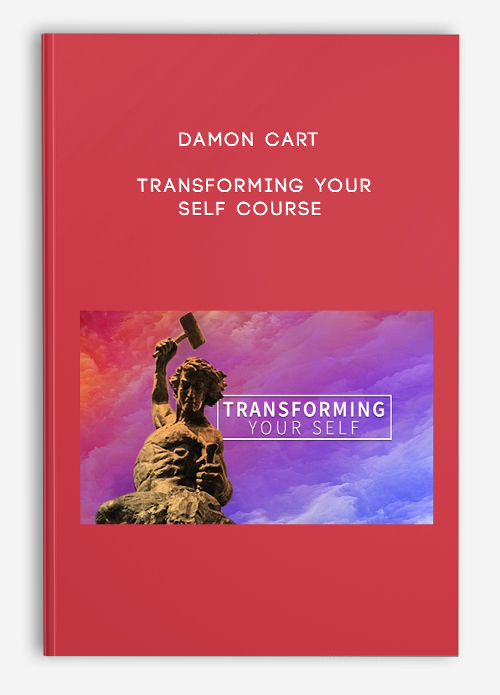
Transforming Your Self Course by Damon Cart
Change yourself
Learn yourself, powerful models for changing your beliefs about your self-concept.
Complete 3 days of training by Steve Andreas
Over 11 hours of streaming video from a full 3 day training: $ 245 for unlimited access. (Before applicable tax)
Plus bonus video!
People have recognized for centuries that a strong identity provides both a keel and compass when sailing the Sea of Life, maintaining stability and direction despite wind, weather, and currents. was doing. But if your self-concept is not well built, it may not work well in a storm and lead you to rocks. In this training, you will learn how self-concepts work and how to use their understanding to make them more effective.
Here is a working self-concept:
a. Elasticity, durability, durability (available when you need it most).
b. Accurate (fits reality).
c. Self-correction (responsive to feedback).
d. Unconsciousness (such as peak performance).
e. Connect with others, not separate.
f. Unaffected by self-importance, arrogance, and all other egoism.
Your self-concept is a generalization, self-belief that you make about who you are. It’s not a single one. It consists of many different qualities and abilities (tenacity, intelligence, kindness, etc.).
From abundant memories (and future predictions), we select quality experiences, collect them and assemble them into internal mental structures.
Like your name, your self-concept goes through context and over time. The changes generalize very broadly in time and space and in unexpected ways.
It is a feedforward, goal-oriented system that is self-referential and self-generating, and creates and self-strengths itself, as it is a process that describes itself.
This is just one of the many generalizations you can create from rich memory and predictions, so you can always change it to something more effective. Understanding the detailed structure of self-concepts makes it easy to make changes that improve behavior.
The program was recorded during the 2004 Colorado Summer Home Practitioner Training in Colorado and is also part of NLP’s comprehensive “Portable Master Practitioner Training” DVD set.
The program includes live training of all the materials in the book “Transforming Your Self” by Steve Andreas (2002).
Why buy streaming video when the same information is much cheaper to get in book form?
There are many possible answers to that question. Many people find it much easier to learn from live training than books. Live training is like a song. With non-verbal delivery of content (verbal lyrics) and singing (keys, melodies, timings, emphasis, etc.), you’ll hear a much richer experience than just a written score. Gestures and other nonverbal responses available in videos often make it difficult or impossible to describe in words.
This need not be a choice of either or both. Many trainings have little or no handouts. The book on which this training video is based is the most complete “handout” you can imagine, so you don’t have to take notes in writing, you can immerse yourself in the video, and ensure you have the knowledge that you can always refer to it. .. Book section. All trainings are somewhat unique in questions and problems encountered by participants and offer a wide range of experiences.
Trainers who want to expand and add to their skills may find it helpful to learn from this expanded experience of Steve’s relaxed but well-organized training style, even if they are already familiar with the content.
Technical note:
This single camera footage has not been edited and is “flying to the wall”, complete for a few minutes now and when recording fails.
Steve always wears a microphone, and the audience for the demonstrations always wears a microphone, so the sound quality is very good. Participants do not have microphones, so it can be difficult to hear comments or questions clearly. But the point of what they said is usually clear from the context and Steve’s reaction to it.
Bonus video! : Building a self-concept demo
In addition to the 11+ hours of regular video, you’ll get a free demo of how to use this information with your clients. In this demonstration, Peter learned how to think he should love himself. And the wide-ranging impact of this change has been demonstrated in follow-up interviews with Peter and his wife.
What people say about their transformation:
“Steve Andreas’s” Transforming Your Self “is not only a must-read book, but a must-read. Many self-helps these days list the habits and abilities needed to succeed. Unfortunately, it does not tell you how you can get those properties in a way that matches who you are. By following the step-by-step instructions in Steve’s book, you can build a self-concept that lets you do what you always wanted.
“I know I lost £ 70 in 6 months by creating the self-concept that I am eating a healthy diet,” I know. Using Steve’s process, I was able to:
Always identify the times when I had a healthy diet. It wasn’t as bad as I expected.
Whatever is happening in my life, establish not only your strength, but your deep motivation to become a healthier diet.
Redirects all the habits and beliefs that have prevented me from consistently maintaining a healthy diet.
“I haven’t put on more than five years of weight, and I’m not afraid it will come back.”
—Wayne A. Perry III
“Reading this book is much more cohesive, as it was when NLP appeared in Prince with Frogs. Fresh new thoughts are the clarity, warmth, and humor of Steve’s customary thoughts. Connect: Steve Andreas becomes the leader of the NLP community again, I think this is the best NLP framework ever to handle a level of identity. Changing your self is simply breathtaking There are already people hungry for self-update to be happy to read my copy. ”
—Richard Bolstad, NLP Trainer, New Zealand
“When I first created Transforming Your Self, I was amazed by the depth of this work. Looking back at my gratitude and looking back on the most grateful time of my life, I had my first experience of transformation. I was so grateful that I had many tears.
“When I first used this model with others, I worked with a woman who had the self-sustaining trait she was proud of. Step by step outlined how to make this The quality got even stronger. Sometimes she was about to tear. When we finished I asked her if she was independent. “Yes, but now I understand how many people have helped me. Such reactions are typical of the deep balance and humility that arise from the work of self-concept The opposite of centralism / narcissism.
“When I’m working with a client, the typical comments I get are:” Is this really happening? “” Is this going like this? “” How easy is this? “?” And shows a conscious surprise with an unconscious change in hope.
“A few years later, I’ve used the model for my personal development, and I’ve had extraordinary results with my clients. All models have their limits, but I still find the limits of self-conceptual models. No, anywhere in the NLP. ”
—Damon Cart, NLP Gym
“Since last Monday, I’ve been going back and forth between reading the Six Blind Elephant (Volume 1 so far) and your transforming self. I’m exercising, distinguishing and playing, Take notes, review, and … wow … I’m always amazed at how good I feel and what I do after that. Sometimes I feel like a whole new person. I still know that I am. Much better organized, happy and lasting.
“I knew that they were important ten years ago when they first met, but regularly reviewing and using the material really benefited me. I would like to say thank you for taking the time to discover and pull out those patterns and write them down so that I can benefit from them. ”
—Ryan Nagy
“I recently read Transforming Your Self. This is one of the few problems with my self-concept that has plagued me for over 20 years: my anxiety, burnout, and depression. It helped me fix the problem that was the root cause. It’s been about two months since your book helped me repair it, and as a result my spirit was rebuilt considerably. I’m surprised to see that, especially above all, I’m confident in my ability to work long-term for the first time in an adult’s life, and I’m safer than ever before.
“I used to temporarily hit highs from things like antidepressants, but in the end all calmed down and regained hopelessness. But this is a very different feeling. The drug didn’t change the thought pattern behind my depression, it just made me feel better for a moment. I’m not particularly feeling special now, but I have experienced very different thoughts. This gives you the confidence that these are actually the kinds of changes that persist.
“Though after three months, it’s a little harder to see the changes, but in most cases, the changes continue to persist. It’s hard to remember the time before. And of course, they There were also new uncertainties that manifest themselves, which in turn responded to your self-transformation and the combination of technology from other sources. ”
—Kaj Sotala, Finland
Course curriculum
Change yourself
start
Handouts
start
Video 1 (68:50)
start
Video 2 (53:24)
start
Video 3 (30:30)
start
Video 4 (55:32)
start
Video 5 (50:04)
start
Video 6 (52:48)
start
Video 7 (53:00)
start
Video 8 (60:12)
start
Video 9 (70:18)
start
Video 10 (54:36)
start
Video 11 (43:38)
start
Video 12 (33:15)
start
Video 13 (76:09)
start
Bonus Video: Building a Self-Concept-Demo (42:32)
Self Help – Self Help online course
More information about Self Help:
Self-help or self-improvement is a self-guided improvement—economically, intellectually, or emotionally—often with a substantial psychological basis.
Many different self-help group programs exist, each with its own focus, techniques, associated beliefs, proponents and in some cases, leaders.
Concepts and terms originating in self-help culture and Twelve-Step culture, such as recovery, dysfunctional families, and codependency have become firmly integrated in mainstream language.
Self-help often utilizes publicly available information or support groups, on the Internet as well as in person, where people in similar situations join together.
From early examples in self-driven legal practice and home-spun advice, the connotations of the word have spread and often apply particularly to education, business,
psychology and psychotherapy, commonly distributed through the popular genre of self-help books.
According to the APA Dictionary of Psychology, potential benefits of self-help groups that professionals may not be able to provide include friendship,
emotional support, experiential knowledge, identity, meaningful roles, and a sense of belonging.


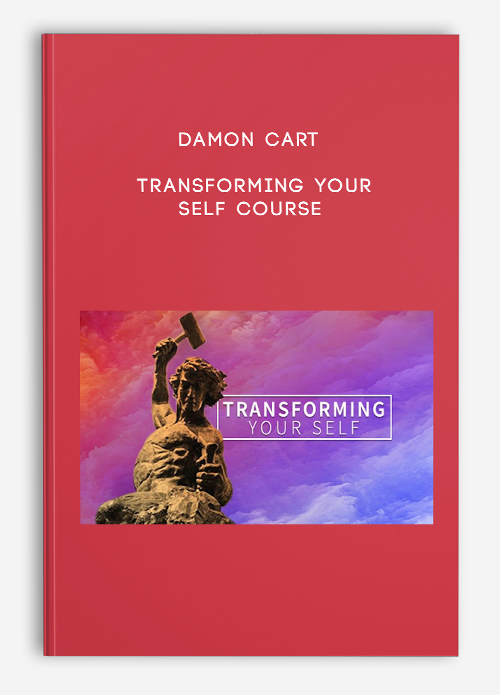
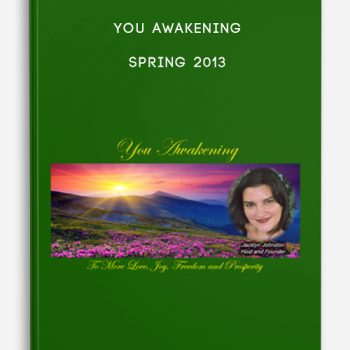
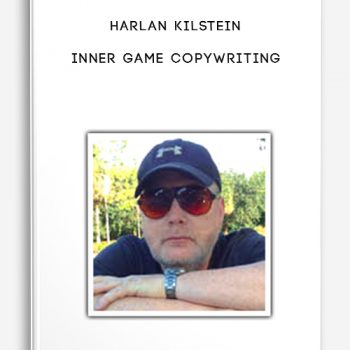
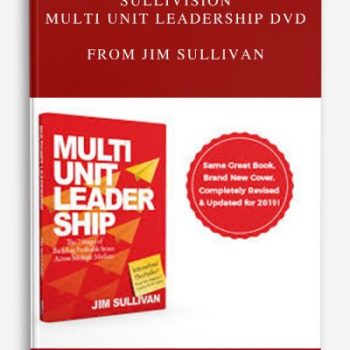
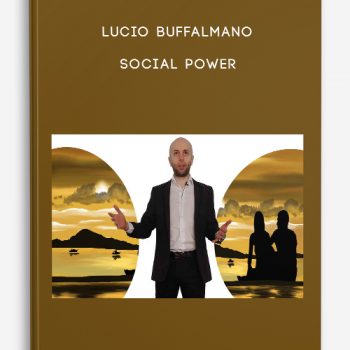

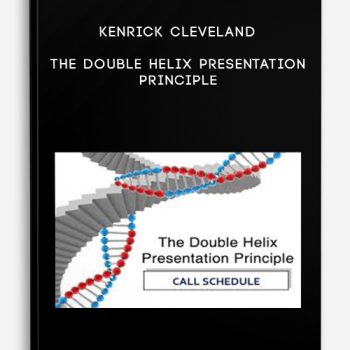
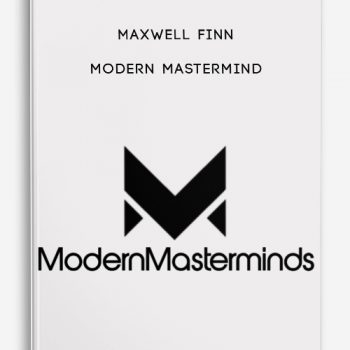

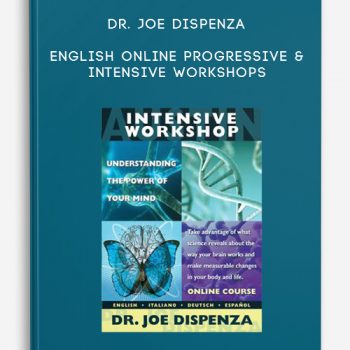

tristian –
This is Digital Download service, the course is available at Coursecui.com and Email download delivery.